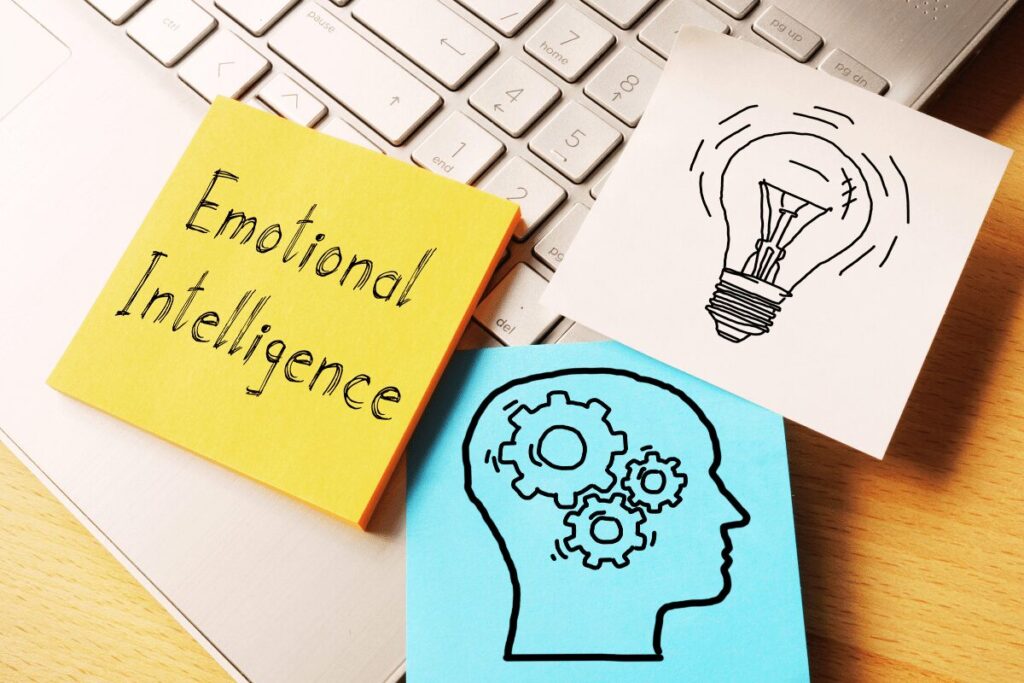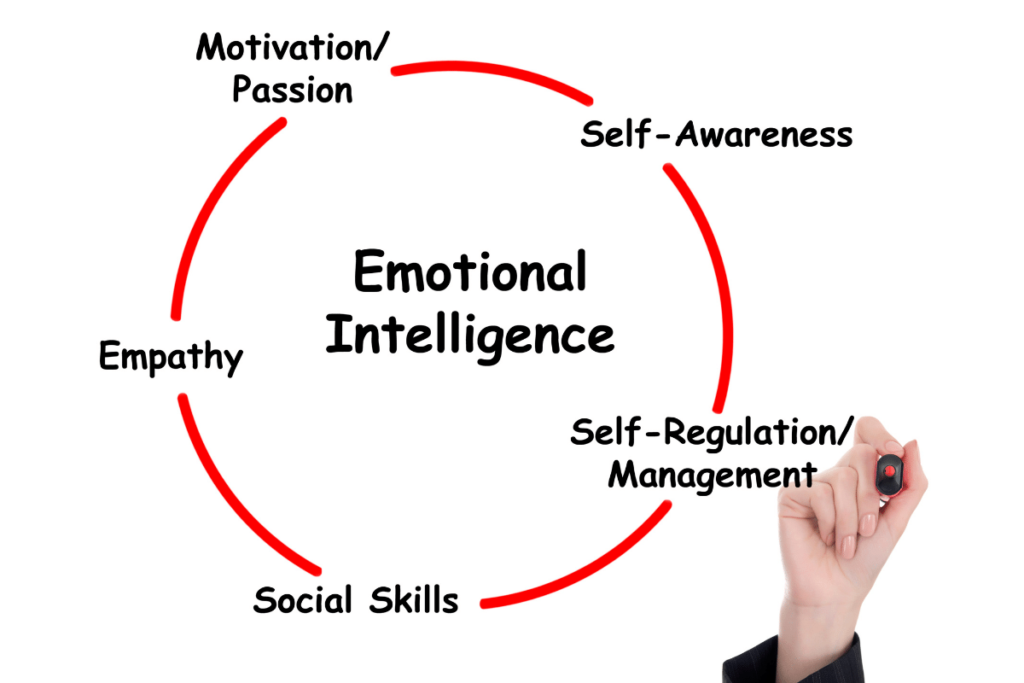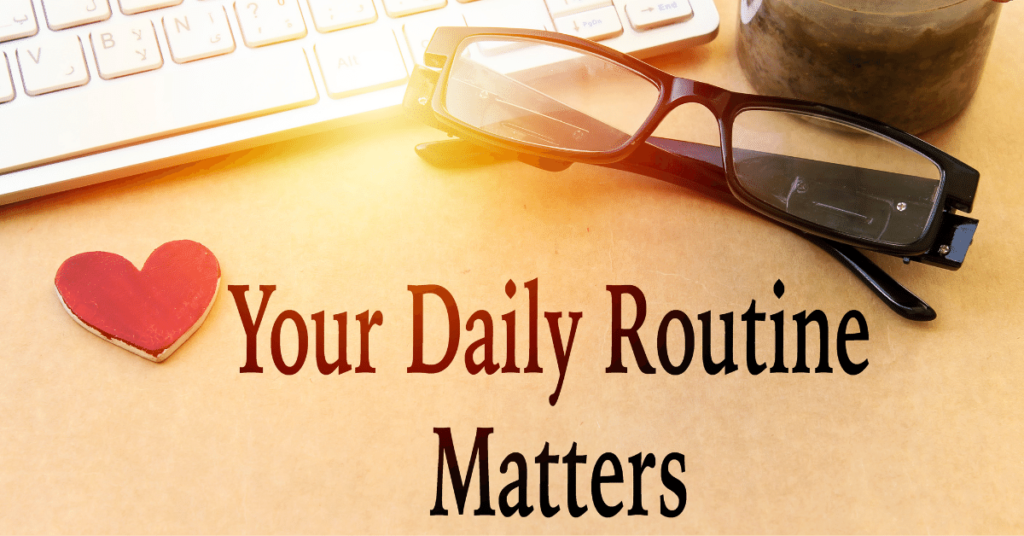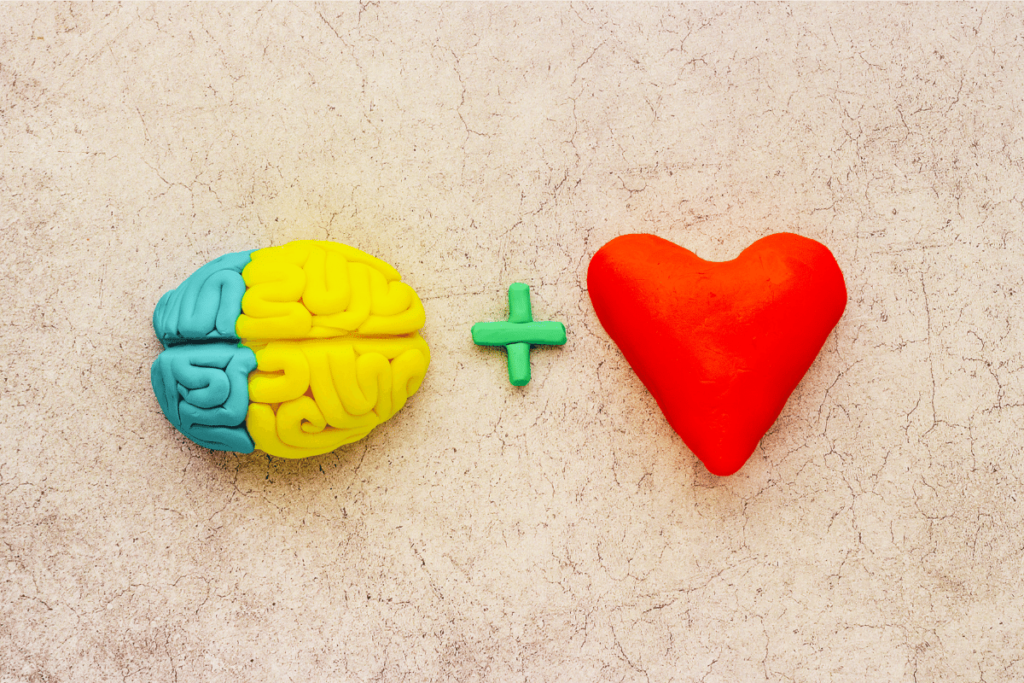Have you ever heard of Emotional Intelligence (EQ)? Have you ever questioned how understanding your emotional intelligence can work wonders for your relationships, resilience, and overall fulfillment? Well, if you have, and that is why you are here, let me be the first to give you the inside scoop on how to level up your self-insight, empathy, communication skills, and stress management through some easy-peasy daily practices.
Table of Contents
Now, we will go further into each of these areas:
What is Emotional Intelligence?

Emotional intelligence involves understanding and controlling your emotions, as well as understanding others’ emotions.
It means being aware of your feelings in the moment – anger, sadness, stress, joy – and possessing the skills to address them healthily. It also entails empathizing with what someone else is experiencing emotionally.
People with high emotional intelligence tend to enjoy better relationships, adeptly handle challenges, and experience greater success in work and life. This is because EQ enables you to connect meaningfully, make discerning choices, and reduce conflict.
Key skills linked to emotional intelligence include self-awareness, self-control, motivation, empathy, and interpersonal abilities. Dedicated practice can hone these!
Why Does Emotional Intelligence Matter?

Cultivating your EQ influences both relationships and personal wellness.
It allows you to relate to and understand others better through empathy. When you can envision life from someone else’s perspective, you can nurture far healthier relationships free of unnecessary discord.
Additionally, EQ assists you in managing difficulties and constructively processing negative emotions by comprehending your feelings and employing effective tools. Rather than suppressing anger, you can communicate it productively.
Overall, higher emotional intelligence leads to improved communication, stronger bonds, and the capacity to thrive in people-centric careers. This skill set serves you well across all domains.
How to Practice Self-Care

Self-care involves taking time for activities that replenish you, spark joy, and enable you to function optimally.
Examples include:
- Obtaining sufficient sleep.
- Eating nutritious foods.
- Exercising.
- Pursuing hobbies.
- Setting boundaries to prevent burnout from excessive demands.
You can begin small – even 10 minutes per day of self-care can make a meaningful impact. Identify areas to focus on, like enhancing sleep habits or scheduling relaxation, and experiment to discover what resonates.
Self-care aims to fill your cup so you have the energy and focus to care for others. It benefits both emotional and physical health.
Benefits of Self-Care

Regular self-care offers immense benefits:
- Alleviates stress and anxiety by calming the mind.
- Uplifts mood through activities like exercise, connecting with others, and joyful hobbies.
- Caring for your body via nutrition and sleep bolsters overall health.
- With reduced stress and greater energy, focus and performance improve.
- Taking time to reflect builds emotional intelligence by raising self-awareness.
Making self-care habitual and noticeable enhances your mindset and inner strength. It’s indispensable for emotional wellness. Let self-care be the superhero cape you wear daily, enhancing your mood and overall resilience.
Ways to Boost Emotional Intelligence

Some key ways to develop greater emotional intelligence include:
- Build self-awareness – Reflect on your strengths and growth areas. Be open to feedback.
- Strengthen self-control – Practice managing stress through techniques like mindful breathing.
- Grow empathy – Listen fully, suspend judgment, and relate to different perspectives.
- Refine social skills – Take on new roles and focus on positive communication.
- Embrace a growth mentality – View challenges as opportunities to learn.
- Improve self-care – Meet needs for sleep, nutrition, movement, and relaxation.
- Seek mentors – Study experts’ books and courses. Learn from others.
With steady practice, you’ll gain tremendous insight into understanding yourself and connecting with others. We’re discussing a sweet spot between confusion and excitement, making every interaction delightful.
Emotional Intelligence in Daily Living

Habits to build EQ in daily life:
- Check-in regularly with your emotions to expand your self-awareness.
- When facing conflict, pause and think before reacting. This improves communication.
- Offer validation when people share difficult feelings. This demonstrates empathy.
- In groups, notice social dynamics. Respond sensitively to those excluded or tensions arising.
- Revisit meaningful goals often. This provides motivation and purpose.
- See challenges as opportunities for growth, not self-judgment. This builds resilience.
- Replace negative self-talk with the encouragement you’d give a friend.
- Set aside 10 minutes daily to reflect through journaling or trusted confidantes. This strengthens self-understanding.
Small, consistent EQ habits compound over time into greater wisdom and compassion.
Mindfulness and Emotional Intelligence

Mindfulness means paying attention to the present with open curiosity, minus judgment.
This can profoundly develop key EQ skills like:
- Noticing thoughts and feelings without reacting builds self-awareness.
- Mindful breathing centers you amidst challenges, improving self-regulation.
- Focusing fully fosters empathy and perspective-taking.
- Viewing emotions as passing, not permanent, builds resilience.
- Brief mindful moments reduce stress and show self-care.
Foundational practices like mindful breathing, body scans, and walking cultivate EQ through steady repetition.
In Summary

Honing emotional intelligence and self-care benefits relationships, resilience, and fulfillment. Continue growing self-insight, empathy, communication abilities, and stress management through regular, small practices. Read EQ books, take classes, and implement supportive routines. With commitment to this journey, you’ll gain profound peace and wisdom.
Think of it like this: just as you do a little workout to keep your body in shape, you can do the same for your emotional well-being. Grab some EQ books, take a few classes, and start weaving supportive routines into your daily grind. It’s like creating a roadmap to profound peace and wisdom; trust me, the journey is worth it!
Live Your Life & Love It!
Related Article: Discovering Your Best Self: A Journey of Personal Transformation
FAQs
-
How does emotional intelligence relate to understanding yourself?
Emotional intelligence is deeply connected to understanding yourself. It involves having self-awareness of your emotions, moods, reactions, strengths, weaknesses, needs, and goals. Knowing yourself empowers you to manage your emotions and behaviors more effectively
-
How do you know if you are emotionally intelligent?
Signs you are emotionally intelligent include being able to identify and understand your own emotions, control impulsive reactions, motivate yourself towards goals, show empathy for others, and maintain healthy relationships. Having high EQ means handling challenges maturely, communicating well, and making choices that align with your values.
-
Why is emotional intelligence important?
Emotional intelligence is key for connecting with others, communicating effectively, understanding different perspectives, tackling problems maturely, and avoiding unnecessary conflicts. High EQ leads to better relationships, career success, and overall happiness.
-
What are practical ways to implement emotional intelligence daily?
Daily EQ habits include checking in with your emotions, pausing before reacting to conflict, validating others’ feelings, setting empowering goals, replacing negative self-talk with encouragement, and reflecting through journaling.
-
Can adults enhance their emotional intelligence?
Yes, adults can absolutely elevate their EQ through mindfulness, journaling, deepening relationships, self-care practices, and studying EQ concepts. It requires dedication, but is worthwhile.
-
What are common obstacles to developing EQ?
Obstacles include avoiding emotions, conflict, and new situations; lack of self-awareness, defensiveness, and healthy self-care habits. Recognizing these patterns is key for making progress.
-
How long does it take to improve emotional intelligence?
There is no fixed timeline, as EQ involves continuous learning. Gradual improvements can be observed within months through daily reflection, relationship building, and self-care. Focus on the long-term.
-
Can emotional intelligence positively impact one’s career?
Yes, higher EQ strongly correlates with more effective leadership, performance, teamwork, and conflict management. It is highly valued by employers, especially in social roles.









